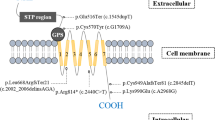Abstract
Male infertility may be caused by genetic defects that increase in prevalence when spermatogenesis is severely impaired. Thus, especially infertile men with severe oligozoospermia or azoospermia should be investigated by cytogenetic and molecular genetic analysis. Structural chromosomal aberrations (e.g., balanced translocations) are found significantly more frequently in oligo- and azoospermic men and numerical chromosomal aberrations of the sex chromosomes, especially Klinefelter syndrome (karyotype 47,XXY), are common among azoospermic men. Screening for Y-chromosomal AZF (“AZoospermia Factor”) deletions is warranted in all men with severe oligo- or azoospermia. Infertile men with obstructive azoospermia should be evaluated for mutations in the Cystic Fibrosis Transmembrane conductance Regulator (CFTR) gene. Detecting chromosomal aberrations, AZF deletions, and CFTR mutations has important prognostic value for the subsequent work-up and especially for genetic counseling about risk for offspring. Patients with Congenital Hypogonadotropic Hypogonadism (CHH), other syndromic forms of male infertility, or infertile men with rare monomorphic defects of spermatozoa should be carefully investigated for the underlying genetic cause. In the near future, men with severe spermatogenic failure may be evaluated by targeted sequencing of a panel of genes.
Similar content being viewed by others
References
Davis-Dao CA, Tuazon ED, Sokol RZ, Cortessis VK. Male infertility and variation in CAG repeat length in the androgen receptor gene: a meta-analysis. J Clin Endocrinol Metab. 2007;92:4319–26.
Krausz C, Hoefsloot L, Simoni M, Tüttelmann F. EAA/EMQN best practice guidelines for molecular diagnosis of Y-chromosomal microdeletions: state-of-the-art 2013. Andrology. 2014;2:5–19.
Lo Giacco D, Chianese C, Ars E, Ruiz-Castañé E, Forti G, Krausz C. Recurrent X chromosome-linked deletions: discovery of new genetic factors in male infertility. J Med Genet. 2014;51:340–4.
Online Mendelian Inheritance in Man (OMIM). http://omim.org/
GeneReviews. Pagon RA, Adam MP, Ardinger HH, et al., editors. Seattle (WA): University of Washington, Seattle; 1993–2016. https://www.ncbi.nlm.nih.gov/books/NBK1122/
Patat O, Pagin A, Siegfried A, Mitchell V, Chassaing N, Faguer S, Monteil L, Gaston V, Bujan L, Courtade-Saïdi M, Marcelli F, Lalau G, Rigot JM, Mieusset R, Bieth E. Truncating mutations in the adhesion G protein-coupled receptor G2 gene ADGRG2 cause an X-linked congenital bilateral absence of vas deferens. Am J Hum Genet. 2016;99:437–42.
Ratbi I, Legendre M, Niel F, Martin J, Soufir JC, Izard V, Costes B, Costa C, Goossens M, Girodon E. Detection of cystic fibrosis transmembrane conductance regulator (CFTR) gene rearrangements enriches the mutation spectrum in congenital bilateral absence of the vas deferens and impacts on genetic counselling. Hum Reprod. 2007;22:1285–91.
Tüttelmann F, Gromoll J. Novel genetic aspects of Klinefelter’s syndrome. Mol Hum Reprod. 2010;16:386–95.
Tüttelmann F, Simoni M, Kliesch S, Ledig S, Dworniczak B, Wieacker P, Röpke A. Copy number variants in patients with severe oligozoospermia and Sertoli-cell-only syndrome. PLoS One. 2011;6:e19426.
Vezzoli V, Duminuco P, Bassi I, Guizzardi F, Persani L, Bonomi M. The complex genetic basis of congenital hypogonadotropic hypogonadism. Minerva Endocrinol. 2016;41:223–39.
Yatsenko AN, Georgiadis AP, Röpke A, Berman AJ, Jaffe T, Olszewska M, Westernströer B, Sanfilippo J, Kurpisz M, Rajkovic A, Yatsenko SA, Kliesch S, Schlatt S, Tüttelmann F. X-linked TEX11 mutations, meiotic arrest, and azoospermia in infertile men. N Engl J Med. 2015;372:2097–107.
Zitzmann M. Pharmacogenetics of testosterone replacement therapy. Pharmacogenomics. 2009;10:1341–9.
Author information
Authors and Affiliations
Corresponding author
Editor information
Editors and Affiliations
Rights and permissions
Copyright information
© 2017 Springer International Publishing AG
About this entry
Cite this entry
Tüttelmann, F., Röpke, A. (2017). Genetics of Male Infertility. In: Simoni, M., Huhtaniemi, I. (eds) Endocrinology of the Testis and Male Reproduction. Endocrinology. Springer, Cham. https://doi.org/10.1007/978-3-319-29456-8_34-1
Download citation
DOI: https://doi.org/10.1007/978-3-319-29456-8_34-1
Received:
Accepted:
Published:
Publisher Name: Springer, Cham
Print ISBN: 978-3-319-29456-8
Online ISBN: 978-3-319-29456-8
eBook Packages: Springer Reference MedicineReference Module Medicine




